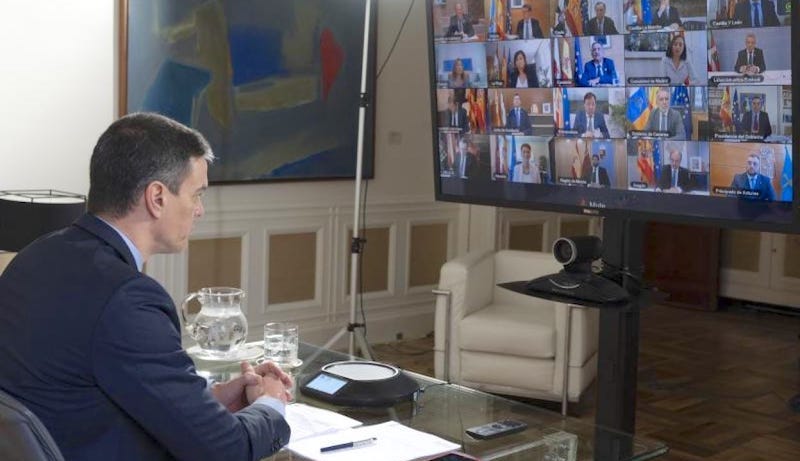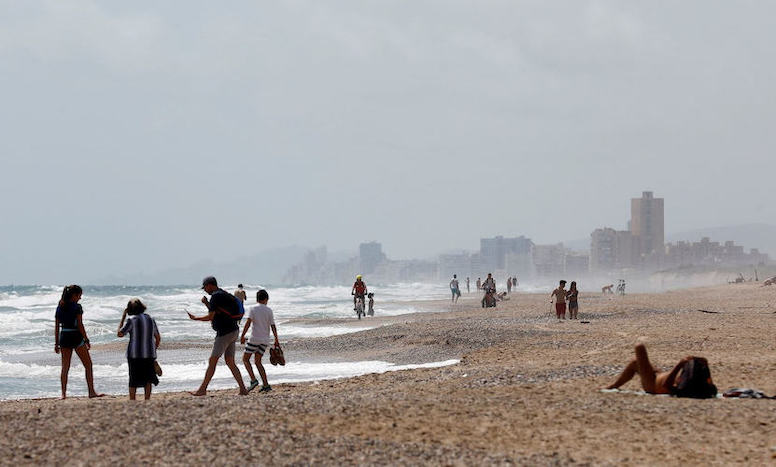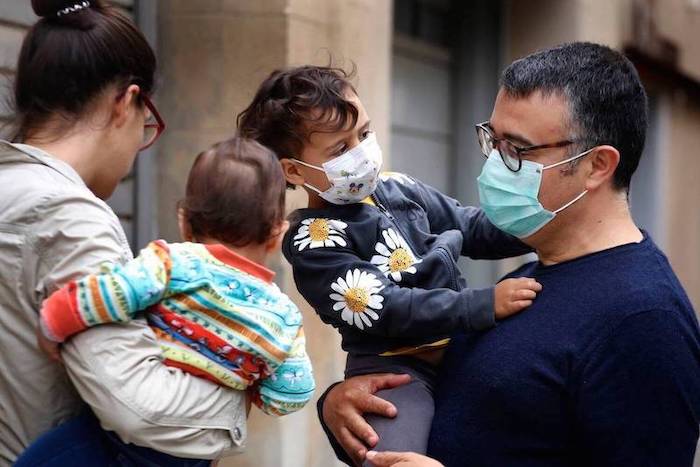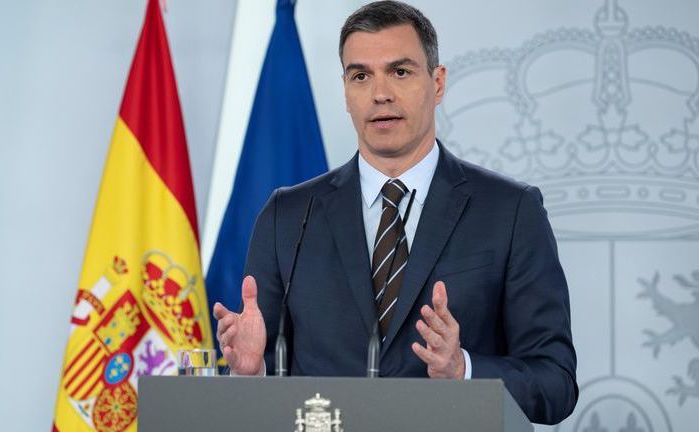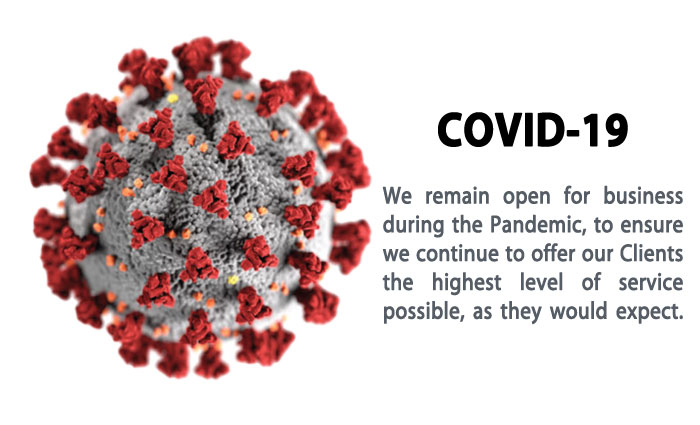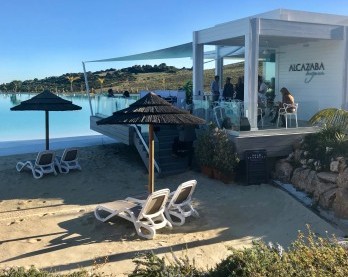Here is our news blog, with the latest property and property related articles from the coast:
Spain will reopen borders to EU states on June 21, Prime Minister Pedro Sánchez tells regional chiefs
Travelers from non-EU countries will be permitted to enter from July 1, providing there is a reciprocal agreement on travel and taking into account the epidemiological situation in the country of origin. During his weekly video conference with Spain’s regional premiers, Prime Minister Pedro Sánchez announced today that the country will reopen its borders with all European Union countries on June 21.
The exception will be Portugal, which will have to wait until July 1 on the request of the Portuguese government. Spain’s King Felipe VI and the Portuguese Prime Minister António Costa will hold a ceremony on that day to reopen the Spain-Portugal border. Borders were closed by the Spanish government under the state of alarm, which was implemented on March 14 in a bid to slow the spread of the coronavirus.
The state of alarm will also end on June 21, meaning that residents in the country will be able to travel freely once more throughout the territory. Spain implemented one of the strictest coronavirus lockdowns in the world, and most residents are still limited to their province or territorial unit under the government’s ongoing deescalation plan. Travelers from non-EU countries will be permitted to enter Spain from July 1, the prime minister explained, provided there is a reciprocal agreement on travel and taking into account the epidemiological situation in the country of origin. Sánchez expressed particular concern at today’s meeting about the situation in the American continent and countries such as Russia. Sánchez told the regional chiefs today that from June 21, travelers arriving in the country will no longer be required to stay in quarantine for two weeks.
The prime minister also reported that in the last week, a total of 27 coronavirus-related deaths have been registered according to Health Ministry data, with 235 new infections detected in the last 24 hours. The prime minister announced to the regional premiers that today’s would be the last of the weekly video calls that have been taking place every Sunday since the coronavirus crisis began. He added that their next meeting would be toward the end of July, and would be in person.
70% of Spain will be in Phase 2 of coronavirus deescalation plan by Monday, government announces
The entire region of Valencia will enter this stage, while four islands have been given the green light to move to Phase 3: The Spanish government announced on Thursday evening the regions that have been given the green light to transition to a new phase of the government’s coronavirus de-escalation plan. Speaking at a press conference, Health Minister Salvador Illa indicated that “from Monday [June 1], 70% of the population will be in Phase 2, a little more than 32 million people, 30% will be in Phase 1, around 15 million people, and 45,000 people in Phase 3.”
The following areas will move to Phase 2: the entire region of Andalusia; the provinces of Ciudad Real; Albacete and Toledo in Castilla-La Mancha; the provinces of Málaga and Cuenca in Andalusia; Totana in Murcia; the healthcare areas in Girona and Cataluña Central, as well as Alt Penedès and El Garraf in Catalonia; and the healthcare area of El Bierzo in Castilla y León. Under Phase 2, regions will be able to decide whether or not classes should restart in schools, social gatherings of up to 15 people are allowed and there are no restrictions on outdoor activity.
The following areas will move to Phase 3: the Balearic island of Formentera and the Canary islands of La Gomera, El Hierro and La Graciosa. According to the deescalation plan, under this stage, bars can reopen at 50% capacity and shoppers will be able to enter establishments until 50% of capacity has been reached. This is the last stage before what Prime Minister Pedro Sánchez called “the new normality.” Currently all of Spain is in at least Phase 1, which allows social gatherings of up to 10 people and sidewalk cafés to open at 50% capacity.
The Madrid region moved to this stage on Monday after its request to relax restrictions was twice rejected by the central government. According to the government’s deescalation plan, each phase must last for at least 14 days, although some regional authorities have requested permission to accelerate the process. The regional government in the Balearic Islands, for instance, asked that all four islands move to Phase 3 to allow residents to travel between the archipelago – a request that was denied. The Madrid regional government did not request to move to Phase 2, but did ask the central government for permission to ease more of the lockdown restrictions. The regional authorities wanted students to be able to return to school to study for their university entrance exams and for the time slots allocated for outdoor activity to be removed. This request was also refused. Fernando Simón, the director of the Health Ministry’s Coordination Center for Health Alerts, explained on Thursday that this decision was made given that the region did not meet the requirements on case tracing capacity and primary healthcare doctors. “The Madrid region asked for some of the relaxation measures of Phase 2, as did other regions, but we are in favor of maintaining the measures that are allowed in each phase,” said Simón.
What changes under Phase 1 and 2 on Monday 25th May 2020?
Many areas of Spain will be moving to different stages of the government’s coronavirus deescalation plan.
Here is the latest from the Official State Gazette and a summary of the relevant stages: Although it has already become a common sight on Spanish streets during the ongoing coronavirus lockdown, from this Monday whole families and groups of friends will officially be allowed to take walks or exercise together under the government’s coronavirus deescalation plan. Under Phase 1, this will be allowed in groups of up to 10 people, and under Phase 2, in groups of up to 15. That’s according to the Official State Gazette (BOE) published on Saturday, which eliminates the restrictions in place until now that allowed just one parent out onto the street with up to three children, or two adults who live under the same roof.
The latest BOE also removes the rule that sports activities could only be practiced individually. From Monday onward, as all of Spain moves into at least Phase 1 – some areas will be in Phase 2 – people who take walks or exercise together will still be required to stay two meters apart from those they do not live with, and follow hygiene requirements, such as regular hand-washing and the use of masks when social distancing is not possible. The BOE also includes measures for Phase 2 related to the reopening of academies and driving schools, and leaves in the hands of Spain’s regions the decision as to whether or not to reopen schools. The text also regulates the use of beaches under the deescalation plan. Phase 1 From Monday, the regions of Madrid, Castilla y León and Valencia, as well as most of Catalonia and the provinces of Ciudad Real, Toledo, Albacete, Granada and Málaga, will all be in Phase 1. Under this stage of the deescalation plan, building work in properties that are being lived in will no longer be prohibited, while the opening of shopping malls will be made more flexible. Stores in malls will be able to open provided that they measure under 400 square meters, or they demarcate an area of that size for customers. They will also require an independent, direct access point from outside of the shopping mall in which they are located. Museums will be able to decide how many people to let in, within a range of 30% to 50% of normal capacity.
Phase 2 The areas of Spain moving to Phase 2 on Monday are: The Canary and Balearic Islands, Galicia, Asturias, Cantabria, the Basque Country, La Rioja, Navarre, Aragón, Extremadura, Guadalajara, Cuenca, Murcia, all of Andalusia apart from Málaga and Granada, Terres de l’Ebre (Tarragona), Camp de Tarragona (Tarragona), Alt Pirineu-Aran (Lleida), and the Spanish exclave cities of Ceuta and Melilla in North Africa. Under this phase, the BOE sets out new conditions for the use of beaches. Towels, sun loungers and personal objects will have to be laid out in a way “that guarantees a security perimeter of two meters with regard to other users, apart from bathers who are cohabitating.” Shared sun loungers will have to be cleaned and disinfected between uses. Open-air showers and foot-washes will be permitted for use, as will bathrooms, changing rooms and other similar public services. Only one person at a time will be able to use such facilities, unless that person requires assistance.
Also under Phase 2, local councils will be able to establish access limits and control the number of people on beaches in order to guarantee a two-meter distance can be observed, as well as establishing time limits both on the sand and in car parks. The order specifies that access to beaches must always be free of charge. To calculate the maximum capacity of a beach, each bather is considered to occupy approximately four square meters. The Health Ministry is also authorizing the regions to establish limits for the number of people allowed in bars, restaurants and terraces, albeit between 30% and 50% of their usual capacity. Nature parks will be able to reopen under Phase 2 at 20% of their usual capacity, as well as cable cars, provided that passengers are limited to 50% of the allowed capacity, and there is at least one seat free between people or groups who do not live together. The order also permits regional governments to set out the requirements for visits to residents in supervised housing, homes for the disabled and senior residences, as well as the rules for walks by residents.
Previous BOEs had set out requirements for prior appointments for such visits, and prohibited visits to seniors, and did not mention walks. Under Phase 2, regions will also be able to decide whether or not classes should restart in schools. Regional governments will be able to decide if schools should continue with distance and online teaching. Until now, the reopening of schools and daycare was only being considered for two years of high school students and for children aged between zero and six years old whose parents cannot work from home. The regions had already warned the government, however, that they would prefer to reopen schools in September. Also under Phase 2, driving classes can restart, albeit with masks being obligatory inside the vehicle, as well as cleaning and disinfection of the latter before and after each use.
Phase 1 summary – what is permitted?
Timetables for taking walks and other exercise will still be in place, although regions will be able to adapt them according to factors such as hot weather. These timetables do not apply to municipalities with fewer than 10,000 inhabitants. Social gatherings of up to 10 people outside or in people’s homes, as long as social distancing measures are respected and masks are worn. Groups of up to 10 people can enjoy activities of active tourism or nature walks. Citizens can travel to second homes provided they are in the same province, island or territorial unit of residence. Citizens can move freely in their territory, province or island. Small businesses with premises measuring below 400 square meters can serve customers with safety measures in place, without the need for a prior appointment and limiting capacity to 30%. Larger businesses can demarcate a 400-square-meter area for customers. There must be a priority timetable to serve the over-65s. Outdoor markets may operate but with a third of usual capacity and 25% of normal stands. Cultural events involving under 30 people can be held indoors at a third of capacity, while for outdoor events capacity rises to 200 people. Sidewalk cafés and restaurant terraces can open at 50% capacity, and single-use products must be prioritized. Places of worship may open at 30% capacity. Objects must not be shared during services. Car dealerships can reopen using appointment systems, while ITV vehicle testing centers can also reopen, as can garden centers, regardless of their size. Non-professional sports are allowed if they involve activities that do not require physical contact or the use of locker rooms. Schools can reopen for essential maintenance tasks. Hotels and tourist accommodation can open as long as they keep common areas such as buffet rooms closed. Sports fishing and hunting activities are permitted. Museums may open at a third of capacity. Funeral services may be held with “a limited amount” of mourners.
Phase 2 summary – what is permitted?
Walks and sport. Everyone under the age of 70 can take walks and physical activity during the day, with just one timetable restriction: 10am to 12pm and 7 to 8pm are reserved for seniors aged over 70. Social contact. The number of people who can meet for social purposes, either in public or in a home, is increased to 15, while the limit of people for active and nature tourism activities is increased to 20. Congresses, business meetings and conferences are allowed provided there are no more than 50 attendees, with two-meter social distancing observed. Mobility. Citizens are permitted to move freely within their province, island or territorial unit, including to their second homes. Businesses. Stores can open independently of their size, albeit with capacity limited to 40%. There must be priority timetables for the over 65s. Markets. Open-air markets are permitted with a third of normal stands. Shopping malls. Shopping malls can reopen, provided capacity is limited to 30% of common areas and 40% in each of the commercial premises located inside. Customers will not be allowed in common areas, apart from to move from one store to another. Hostelry. Bars and restaurants can reopen their interior dining areas, apart from nightclubs and nighttime bars, provided capacity is limited to 40%. Dining inside can only take place sat at a table, or groups of tables, and preferably via prior appointment. Self-service at a bar is not permitted. Sidewalk cafés and restaurants will continue at 50% of capacity. Hotels. The common areas of hotels and tourist accommodation can reopen their common areas, provided capacity is limited to a third. Cinemas and theaters. All cinemas, theaters, auditoriums and similar spaces can reopen, provided that seats are pre-assigned and capacity is limited to a third. Concerts. At open-air concerts, the public must be seated, observing social distancing, with capacity at a third and limited to 400 people. Places of worship. Capacity will be limited to 50% in all places of worship. Funeral wakes. These can take place in public or private installations, with a limit of 25 people when in the open air, and 15 people in closed spaces.
Spanish PM: Overseas tourists will be able to return to Spain from July
During a televised address, Pedro Sánchez also announced that Spain’s top-flight soccer league, La Liga, will restart games next month:
Prime Minister Pedro Sánchez held a press conference on Saturday afternoon to discuss the latest measures being taken by his government during the ongoing coronavirus crisis, announcing, among other things, that the tourist sector should start to prepare for the upcoming summer season and that Spain’s top-flight La Liga soccer league would be restarting games at the beginning of next month. “
The hardest part is over,” the Socialist Party (PSOE) leader said about the Covid-19 epidemic, which has left more than 28,000 dead in Spain according to official figures. “We are seeing light at the end of the tunnel. Now the epicenter has moved to other parts of the planet, as is happening, for example, on the American continent. The response of the Spanish people has been formidable. Everyone has fulfilled their mission and they came together to deal with the epidemic.” “The first achievement: to flatten the curve,” he continued. “The second achievement: when those who have recovered exceed new infections. The third achievement will be to reduce the spread of the virus as much as possible.
Yesterday the reproduction rate was 0.20. Today we can say that we have achieved this not by luck, but with determination. We have taken the correct path. The Spanish people have forced the virus to retreat.” Sánchez pointed to the fact that by Monday, the entire country will be in Phase 1 or Phase 2 of the government’s deescalation plan, with the last parts of the country – such as the Madrid region and Barcelona city – finally leaving the first stage, Phase 0. “From Monday, we will be able to see family and friends once more, businesses will open and the streets will recover their vibrancy.” But he also struck a note of caution. “We are a step from victory, but the virus is still lurking. It’s essential that we don’t relax. “We are in the deescalation process, but we are still in a health emergency,” he continued. “We must always have in mind what the health authorities are telling us. We must act prudently and responsibly. Until a vaccine arrives everything will depend on each one of us. A new outbreak is far from impossible. There is a high percentage that there will be a new outbreak. Prudence must be the key to how we proceed.”
The prime minister said that he understood people’s desire to move forward as fast as possible, but he warned that “there is still around a month” of the deescalation process to go. “It will still be necessary to maintain some limitations on mobility, as will as limits to meetings. These will be for very few weeks, but this will still be necessary,” he said. Spain’s coronavirus lockdown measures have been among the strictest in the world, and many citizens are still severely limited as to when and how they can leave their homes under the current phases in place. “Spain has done what it had to do, and new horizons are now opening up for all of us,” he continued. “The time has come for many everyday activities to return.
From June 8, La Liga will return,” he said, in reference to the hugely popular top-flight soccer league. The 11 matches that are left to play in the current season will be played behind closed doors. He also stressed that many museums and theaters would be reopening too under the next phases of deescalation. “We must begin to restart economic activity,” he continued. “Some of these sectors are hostelry and tourism, which have a fundamental role in the creation of employment. The moment has arrived. I’m announcing to you that there will be a tourist season this year and I invite all tourist establishments to start to prepare from today to restart their activity in a few days from now.” The prime minister encouraged Spaniards to start planning their vacations, and said that from July, foreign tourism would return to Spain “in safe conditions.” He pointed to the fact that Spain usually receives more than 80 million visitors a year from overseas. “From now, foreign tourists can plan their vacations in our country," he added. “We will guarantee that tourists will not run any risks and they will not bring us any risks,” he continued. “There will be no opposing forces between health and business. Spanish tourism will now have two hallmarks: environmental sustainability and health safety,” he stated. Sánchez also focused on the measures his coalition government is preparing for the economy. “Next week the Cabinet will approve a guaranteed minimum income. It will be a permanent scheme. It will be paid for by the Social Security system and will benefit nearly 850,000 households.” The coalition government had been planning to introduce the scheme since before the coronavirus crisis, in a bid to assist the most at-risk members of Spanish society. However, the government has since made clear that the scheme will also now serve to help those households that have been left without income due to the economic crisis caused by the coronavirus epidemic and lockdown. “Between all of us, we have stopped the worst calamity of the century,” he continued. Ahead of us is the challenge of rebuilding our country.
From Tuesday, the government will approve the formal declaration of an official period of mourning. The mourning will last for 10 days. Flags will fly at half mast.” Sánchez went on to explain that an official ceremony, presided by Spain’s King Felipe VI, would also take place to remember the victims of the coronavirus in Spain. “The dead deserve our remembrance,” he said. “But also our mutual understanding. We have to live together in the same country that they built.” Row over EH Bildu The PSOE leader was speaking on Saturday after a particularly difficult week for his coalition government, which he heads with the support of junior partner Unidas Podemos. The government once again had to negotiate with other parties in order to ensure its extension to the state of alarm passed a vote in the Congress of Deputies on Wednesday, eventually securing support for another two weeks of the extraordinary measures that were first implemented on March 14. But the executive was plunged into chaos later on that evening, after it emerged that the PSOE and Unidas Podemos had signed a deal with Basque radical left party EH Bildu in exchange for the group’s abstention at the vote. Among other commitments, the deal included the total repeal of a 2012 labor reform that, among other measures, made it cheaper for companies to fire workers. The commitment to overturn the legislation was included in the governing deal signed by the PSOE and Unidas Podemos, but its inclusion in an agreement with EH Bildu caused widespread outrage among the political opposition – not least given the fact that the nationalist party has refused to condemn the campaign of violence carried out by Basque terrorist group ETA. In line with the arguments offered in previous days by senior PSOE figures, the prime minister sought to downplay the deal and explained that it had been signed in order to ensure the state of alarm stayed in place. He also blamed the main opposition Popular Party (PP) for voting against the extension. “All of this could have been avoided if the PP had abstained or voted in favor,” he argued. Asked by journalists about protests organized today across Spain by the far-right Vox party, in order to demand that the government resign over its handling of the coronavirus crisis, Sánchez said he “had little to say,” adding that “protests are a constitutional right” and that the demonstrators “are free to mobilize as they see fit, provided that they respect the criteria of health authorities.”
We're still open during the COVID-19 Pandemic
The safety of our customers and staff is our number one priority, and so we have taken the difficult decision to close our physical office and suspend all gatherings & meetings until further notice.
We very much remain open for business and our remote team is working hard to make sure that all of our customers continue to receive the highest level of service possible. We're contactable either over the phone, by email or via WhatsApp. Whether you are looking for some advice, are partway through purchasing, or require a service covered by your Management Service, we remain here to support in any way we can.
We have started to carry out external property checks for all vacant properties only, and we are working inline with the new Decrees set, and within government & the Health Organisations recommendations, to ensure the safety of everybody. Please do not hesitate to contact us if you need us, or simply require confirmation if the state of alarm here in Andalucia, Spain.
Thank you. The Property Solutions Spain team.
Alcazaba Lagoon releases new phase off-plan
Recent Posts
- Spain will reopen borders to EU states on June 21, Prime Minister Pedro Sánchez tells regional chiefs Travelers from non-EU countries will be permitted to enter
- 70% of Spain will be in Phase 2 of coronavirus deescalation plan by Monday, government announces The entire region of Valencia will enter this stage,
- What changes under Phase 1 and 2 on Monday 25th May 2020? Many areas of Spain will be moving to different
- Spanish PM: Overseas tourists will be able to return to Spain from July During a televised address, Pedro Sánchez also announced that

